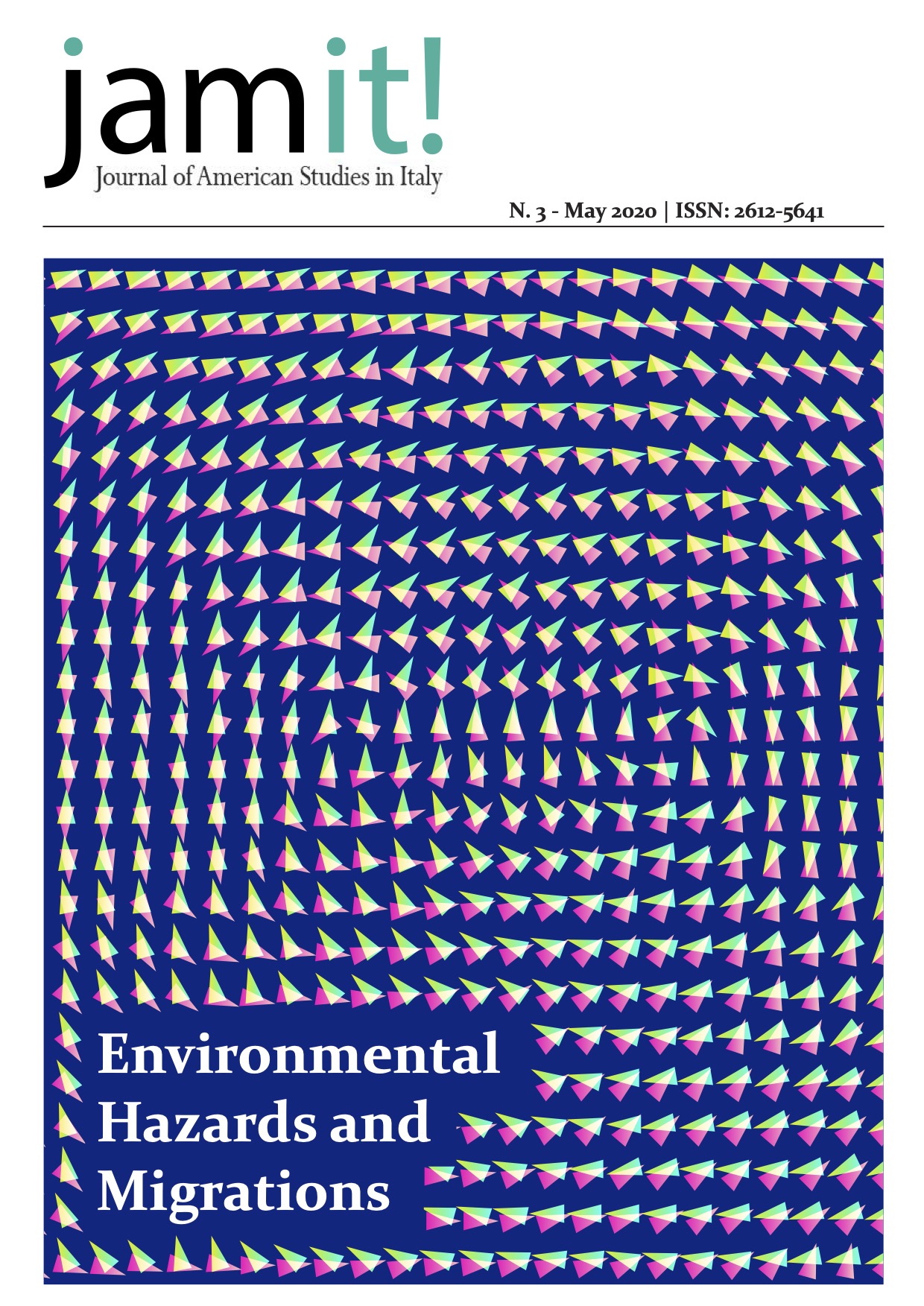Crossing the Threshold of Temporality: "Story of Your Life" and Arrival
Abstract
In Denis Villeneuve’s 2016 science-fiction movie, Arrival, the world is disrupted by the sudden arrival of a fleet of alien spaceships, an event that is going to challenge human conceptions of time, language, and free will. The movie is based on Ted Chiang’s 1998 novella "Story of Your Life," and both the original text and its film adaptation deal with understanding and coming to terms with otherness—alien language, time, death, grief—through the encounter of human and extraterrestrial existence and the exploration of the threshold that connects (or separates) life and afterlife. This essay examines the ways in which the novella and the film address the modes of the weird and the eerie, two concepts which have been theorized by Mark Fisher as “the presence of that which does not belong” and “a failure of absence or a failure of presence” respectively. These modes offer a key to analyzing and understanding the strategies that Chiang and Villeneuve employ to narrate a two-fold story which affects the communal as well as the individual existence. With its ostensibly impossible language, such story bears a significance that lies beyond and outside human perception. "Story of Your Life" deals with the “out of”—that outer dimension which lies beyond our experience of the categories of time and space (Fisher 24-25), not necessarily from a scientific perspective but rather from an existential one. Thus, the heptapods’ arrival raises questions (Why are they here? What do they want?) and poses challenges (How can we speak to them?) which open the way for other, more existential questions and challenges. Eventually, failure of absence (the appearance of the spaceships) and failure of presence (the death of the daughter of the protagonist) meet here, and their encounter provides a powerful meditation on the eerie feelings that haunts human agency and affects our understanding of reality.
References
Camus, Albert. (1942) 1955. The Myth of Sisyphus and Other Essays. Reprint, New York: Random House.
Caruth, Cathy, ed. 1995. Trauma: Explorations in Memory. Baltimore, MD: The Johns Hopkins University Press.
Caruth, Cathy. 1996. Unclaimed Experience: Trauma, Narrative, and History. Baltimore, MD: The Johns Hopkins University Press.
Chiang, Ted. (1998) 2015. “Story of Your Life.” In Stories of Your Life and Others. London: Picador.
DeLillo, Don. Underworld. 1997. New York: Scribner.
Fisher, Mark. (2016) 2017. The Weird and the Eerie. Reprint, London: Repeater Books.
Hayles, N. Katherine. (1990) 1991. Chaos Bound. Orderly Disorder in Contemporary Literature and Science. Reprint, Ithaca and London: Cornell University Press.
Jameson, Fredric. 2003. “The End of Temporality.” Critical Inquiry 29 (4): 695–718. doi: 10.1086/377726.
Jameson, Fredric. 2005. “Progress versus Utopia, or, Can We Imagine the Future?” In Archaeologies of the Future. The Desire Called Utopia and Other Science Fictions. London and New York: Verso.
Lucking, David Ian Clive. 2017. “Enacting Chronology: Language and Time in Chiang’s ‘Story of Your Life’ and Villeneuve’s Arrival.” Lingue e Linguaggi 21: 129–143. doi: 10.1285/i22390359v21p129.
Noletto, Israel A. C., and Sebastião A. T. Lopes. 2018. “Heptapod B and the Metaphysics of Time – Hybrid Interfaces of Literature, Cinema and Science.” Polifonia. Estudos Literários. Dossiê Literatura e Intermedialidade 40 (2): 206–221. doi: 10.5281/ZENODO.2527613.
Oelschlaeger, Max. 1991. The Idea of Wilderness. New Haven, CT: Yale University Press.
Villeneuve, Denis, dir. Arrival. 2016. Roma: Sony Pictures Entertainment Italia, 2017. DVD.
Vonnegut, Kurt. (1969) 2000. Slaughterhouse-Five. Reprint, London: Vintage Classics.
Authors who publish with this journal agree to the following terms:
- Authors retain the copyright and full publishing rights for their submissions to the journal.
- Authors grant the journal right of first publication with the work simultaneously licensed under a Creative Commons Attribution-NonCommercial-NoDerivatives 4.0 International License that allows others to share unedited work for non-commercial purposes with an acknowledgement of the work's authorship and initial publication in this journal.
- Authors are able to enter into separate, additional contractual arrangements for the non-exclusive distribution of the journal's published version of the work (e.g., post it to an institutional repository or publish it in a book), with an acknowledgement of its initial publication in this journal.
- Authors are permitted and encouraged to post their work online (e.g., in institutional repositories or on their website) prior to and during the submission process, as it can lead to productive exchanges, as well as earlier and greater citation of published work (See The Effect of Open Access).



